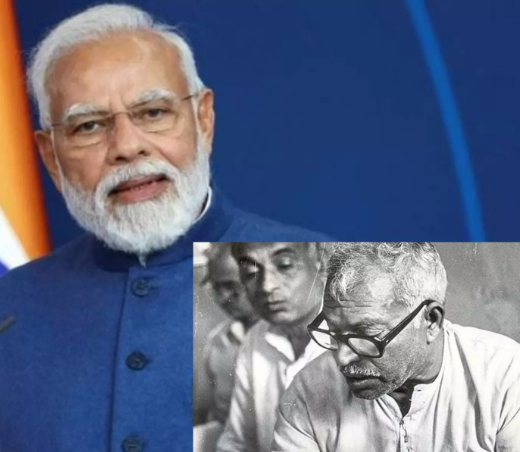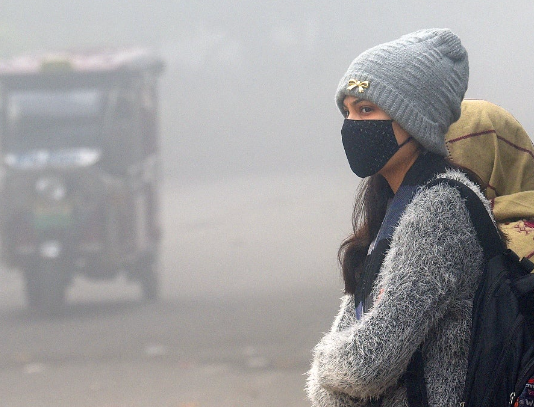
Delhi Minimum Temperature Holds Strong at 8.3°C Despite Challenging Conditions; AQI Persists in ‘Very Poor’ Category
Delhi Weather: Minimum Temperature Holds Strong at 8.3°C; AQI Persists in ‘Very Poor’ Category
On Wednesday, Delhi woke up to a minimum temperature of 8.3°C, just a notch above the normal range, accompanied by moderate fog in the early hours. This marked a slight increase from the previous day’s minimum temperature of 6.9°C. The city experienced a drop in visibility, with Safdarjung recording the lowest at 200 meters until 9:30 am, significantly impacting both flight and train operations.
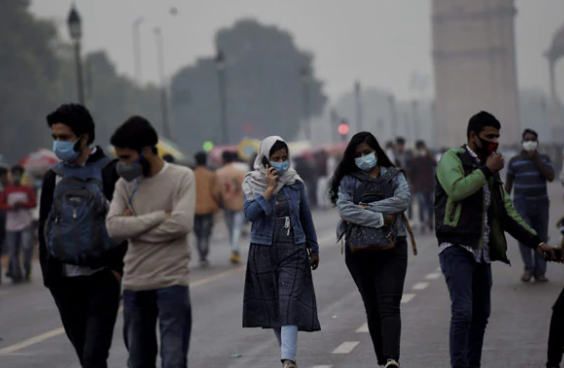
The average air quality index (AQI) at 9 am was measured at 392, categorizing it as ‘very poor,’ although this was a marginal improvement from the previous day’s reading of 368 at 4 pm. The AQI remained below the ‘severe’ threshold of 401, indicating a challenging air quality situation persisting in the national capital. Notably, Delhi has encountered only one ‘severe’ air quality day this month, occurring on January 14, when the average AQI spiked to 447.
The India Meteorological Department (IMD) reported a relief from cold wave conditions in the region, forecasting the maximum temperature to hover around 18°C in delhi. Despite the respite, the city remains on alert, with a yellow warning issued for Thursday, predicting the likelihood of moderate to dense fog in the early hours.
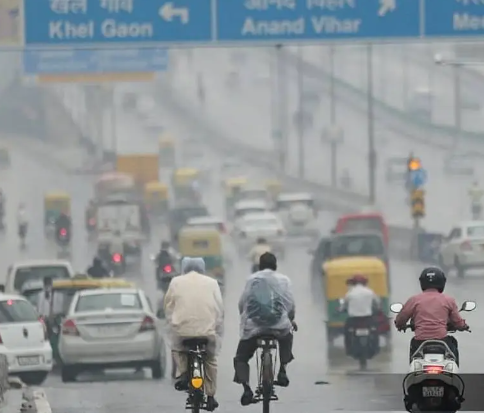
The IMD classifies fog based on visibility: ‘shallow’ when it ranges between 500 and 1000 meters, ‘moderate’ in the 200 to 500-meter range, ‘dense’ between 50 and 200 meters, and ‘very dense’ when visibility drops to 50 meters or lower.
Flight operations at Delhi’s Indira Gandhi International Airport felt the impact of reduced visibility, leading to delays for over 10 flights on Wednesday. Fortunately, no diversions or cancellations were reported. Simultaneously, the Northern Railway disclosed that a total of 24 trains experienced delays of over an hour due to the prevailing weather conditions.
Despite these challenges, the city continues to adapt and manage the effects of weather fluctuations. The situation in delhi calls for increased vigilance, especially with the persistent ‘very poor’ air quality, emphasizing the need for ongoing efforts to address environmental concerns and enhance the resilience of the city’s infrastructure to weather-related disruptions. As Delhi navigates through such weather fluctuations, it underscores the importance of preparedness and adaptive strategies to ensure the well-being of its residents and the smooth functioning of transportation systems.
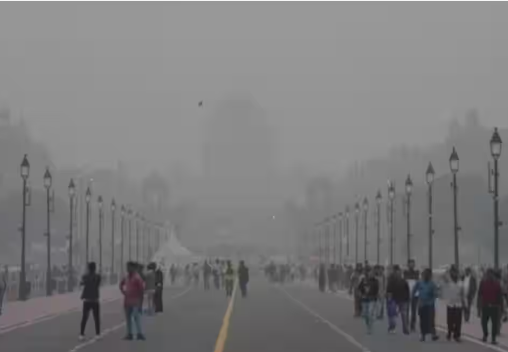
As Delhi grapples with a slight increase in minimum temperatures and moderate fog, the city showcases its resilience in adapting to weather challenges. The rise to 8.3°C, just above the normal range, signals a milder start to the day compared to the previous day’s minimum temperature of 6.9°C. However, the accompanying moderate fog, particularly the recorded lowest visibility of 200 meters at Safdarjung until 9:30 am, presents obstacles for both air and rail travel in delhi .
The average air quality index (AQI) hovering at 392 during the early hours reflects the ongoing struggle with air pollution, categorizing it as ‘very poor.’ Although a marginal improvement from the previous day’s reading of 368 at 4 pm, the persistent challenge of maintaining air quality within acceptable limits remains a priority for the city. With only one ‘severe’ air day recorded this month on January 14, when the AQI reached 447, efforts to address air quality concerns are crucial.
The India Meteorological Department’s (IMD) announcement that cold wave conditions have abated, coupled with a forecast of the maximum temperature around 18°C, provides a glimmer of relief. However, a yellow alert issued for Thursday, predicting moderate to dense fog in the early hours, underscores in delhi the need for continued vigilance.
The impact on transportation systems is evident, with over 10 flights experiencing delays at Indira Gandhi International Airport on Wednesday due to reduced visibility. Fortunately, there were no reported diversions or cancellations. Simultaneously, 24 trains faced delays of over an hour, as disclosed by the Northern Railway.
For the latest updates-click here.

